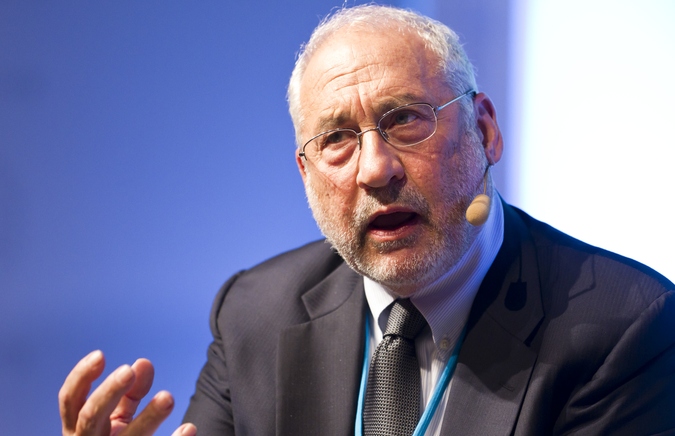World Bank: Structural reform needed to generate global growth

In his book Freefall (2010), Nobel laureate Joseph Stiglitz warned that a “Great Malaise” may prevail around the globe.
LONDON—The growth of the world economy should accelerate modestly to 2.9 percent compared to 2.4 percent in 2014, according to the World Bank’s January 2016 Global Economic Prospects.
In 2015, commodity prices fell, and trade and capital flows weakened. There was volatility in the financial market while global economic growth fell short of expectations.
Looking ahead, nearly universal weakness in most emerging markets means global growth will depend heavily on the continued recovery of developed countries, the stabilization of commodity prices, and China’s transition to an economy based on services and driven by domestic demand, according to the bank.
While some experts are cautiously optimistic about global prospects, others predict the factors that hampered the world economy in 2015 will continue to do so in 2016 and could intensify. Structural reform is urgently needed to prevent the global economy from sliding into prolonged stagnation or even depression.
“In 2016, global growth should pick up. But it will be a very modest recovery, especially among developing countries,” said World Bank Lead Economist Franziska Ohnsorge. If emerging markets slow down simultaneously, that could impede global growth considerably, she added.
“2016 could be better if the euro area and Japan accelerate and China does not decelerate too much,” said Daniel Gros, director of the Centre for European Policy Studies (CEPS). While the falling oil prices have depressed exporters’ incomes in the short term, the stimulus to OECD countries should outweigh the negative impact in the medium to long term, thus contributing to growth in 2016, he said.
Ohnsorge said the slowdown of China’s economy also delivers a message that the quality of growth is being emphasized. The slowdown is needed to rebalance growth to a more sustainable model with less financial volatility.
In addition to the anemic recovery in most emerging markets, risks to the world economy also include financial stress stemming from the US Federal Reserve tightening cycle and intensified geopolitical tensions, according to the World Bank.
“2015 looks ‘mediocre’ only by standard of the bubble years,” said Gros, adding that he does not see any danger of a prolonged stagnation, except in Europe and Japan, where total GDP might stagnate as the active population declines. Still, per capita income is on the rise in those regions, he said.
In general, more aggregate demand would be useful. At the same time, the actual needs vary across different countries and regions. The euro area, for example, needs to liberalize its labor and product markets to increase flexibility, and India needs more investment and lower barriers to trade for its manufacturing sector to grow, Gros said.
When growth slows, typical policy options include monetary and fiscal policy to address cyclical slowdowns as well as structural reform to address structural slowdowns. Ohnsorge said the current slowdown underway in emerging markets has both cyclical and structural features, so both policy options could be considered.
“The problem is that many countries have run out of room for monetary and fiscal stimulus, leaving structural reform as the only solution that would have a big impact,” Ohnsorge said.
The major emerging markets have structural problems that cannot really be solved by monetary or fiscal policy,” Gros said. The oil exporters need tighter fiscal policy, while other emerging markets need to increase their productivity, and some need to either increase or lower their investments, he said.
Apparently, markets lack the capacity to easily undergo a structural self-correction, and the “Great Malaise” predicted by the Nobel laureate Joseph Stiglitz will continue to haunt the global economy unless the problem of insufficient aggregate demand is solved.
Jiang Hong is a reporter at the Chinese Social Sciences Today.
